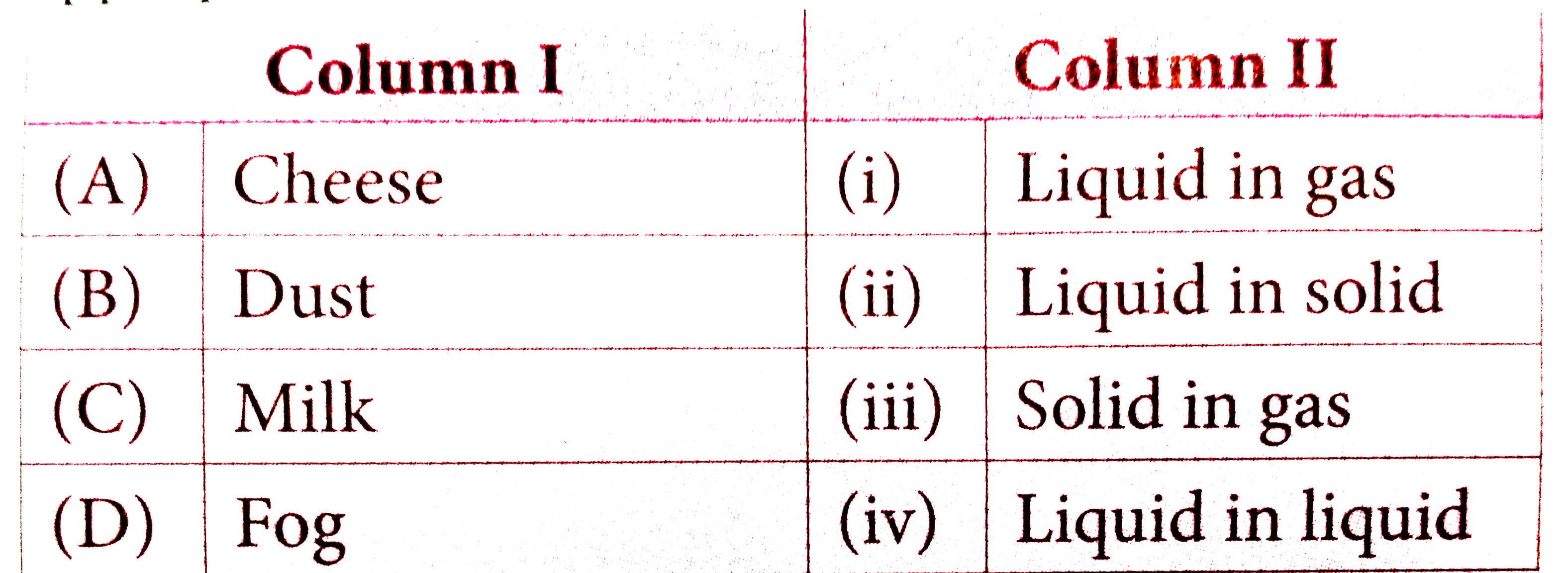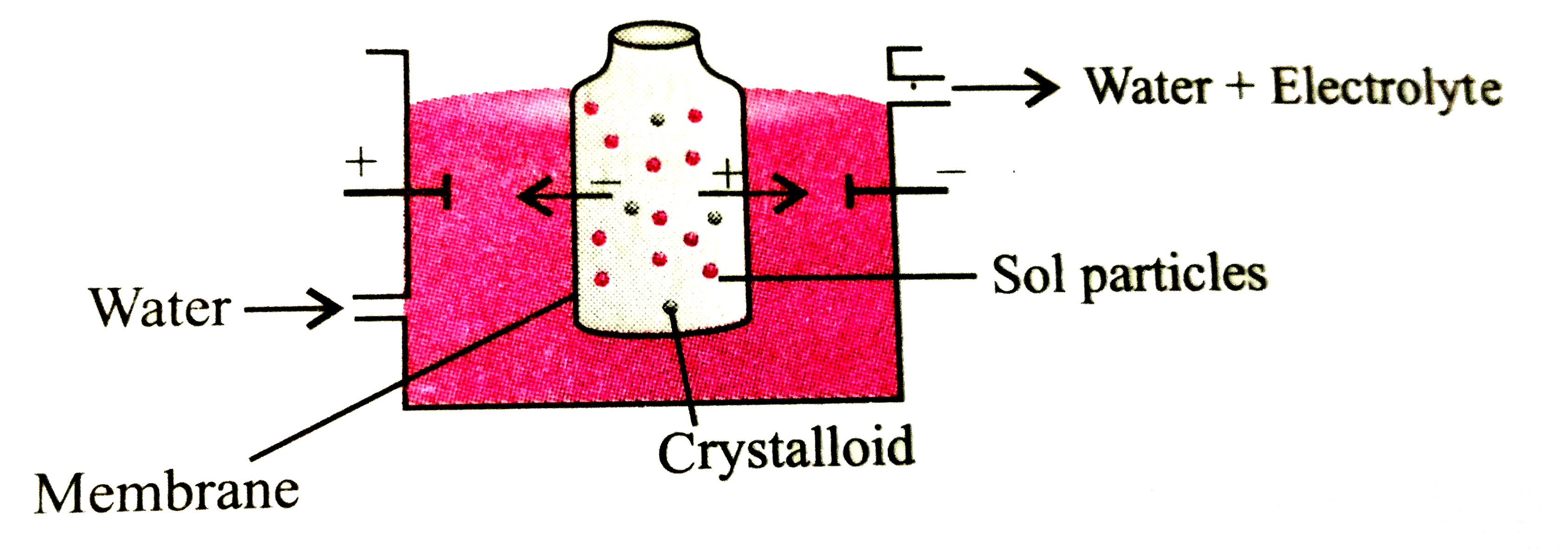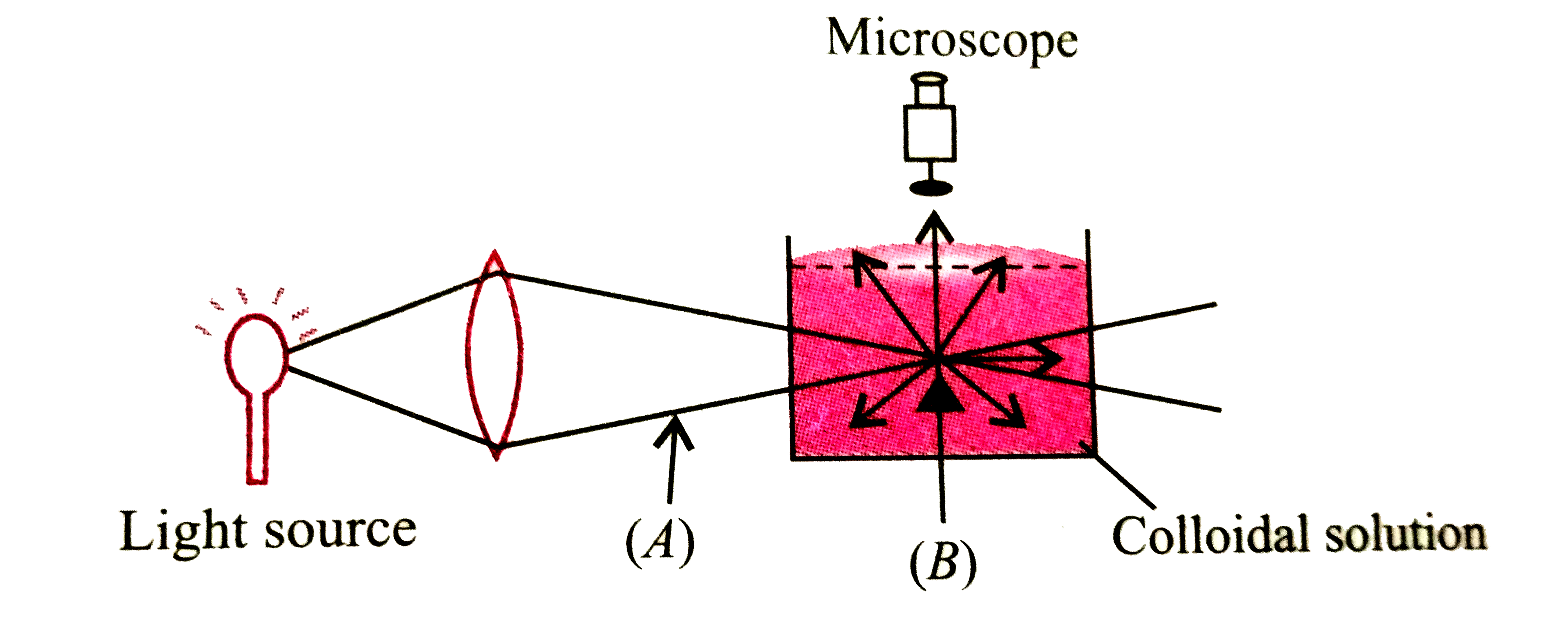Complete Solutions to Colloids And Classification Of Colloids of chapter SURFACE CHEMISTRY of Class 12 book with complete answers and questions
| Class 12 | CHEMISTRY |
| Chapter | SURFACE CHEMISTRY |
| NCERT FINGERTIPS | Colloids And Classification Of Colloids |
| Number Of Questions | 45 |
| Academic Year | 2023-24 |
The size of colloidal particle is
View SolutionWhich of the following will not form a colloidal system ?
View SolutionFog is a colloidal system of :-
View SolutionThe colloidal system consisting of a liquid dispersed in a solid dispersion medium is termed as :
View SolutionWhich of the following examples is correctly matched ?
View SolutionMark the incorrect combination out of the following examples of colloidal solutions .
View SolutionMatch the column I with Column II and mark the appropriate choice.

View SolutionLyophilic sols are also called reversible colloids because
View SolutionWhich of the following is contributed towards the extra stability of lyophilic colloids?
View SolutionA lyophobic colloid cannot be formed by
View SolutionWhich of the following is not the correct difference between lyophobic and lyophilic sols ?
View SolutionWhich of the following is not correctly matched ?
View SolutionSubstances which behave as normal electrolytes in solution at low concentration and exhibit colloidal properties at higher concentration are called
View SolutionIn these colloids , a large number of small atoms or smaller molecules of a substance aggregate to form colloidal particles having size in colloidal range. These colloids are known as
View SolutionThe substances which behave as colloidal solutions at higher concentration are called
View SolutionThe formation of micelles takes place only above
View SolutionCMC (Critical Micelle Concentration) is
View SolutionAt the critical micelle concentration, the surfactant molecules :
View SolutionIn the given figure label the parts

View SolutionSoap mixed with water below critical micelle concentration behaves as
View SolutionWhite of an egg whipped with water acts as
View SolutionColloidal solutions of metals like gold can be prepared when their salt solutions react with certain substances like `SnCl_(2)` , formaldeyde, phenyl hydrazine , etc.
`2AuCl_(3) + 3SnCl_(2) to 3SnCl_(4)+ underset("sol")(2Au)`
The above method is an example of
View SolutionWhen a small quantity of `FeCl_(3)` solution is added to the fresh precipitate of `Fe(OH)_(3)` , a colloidal sol is obtained. The process through which this sol is formed is known as
View SolutionWhich of the processes is being shown in the figure ?

View SolutionWhich of the following is not a method of removing impurities from a colloidal sol ?
View SolutionTyndall effect is observed only when
(i) the diameter of the dispersed particles is not much smaller than the wavelength of the light used.
(ii) the refractive indices of dispersed phase and dispersion medium differ greatly in magnitude .
(iii) the size of the particles is generally between `10^(-11) and 10^(-9)` m in diameter.
(iv) the dispersed phase and dispersion medium cna be seen separately in the system .
View SolutionWhen a colloidal solution is viewed from the direction at right angles of light beam, the path of the beam is illuminated due to scattering of light . In the figure (A) and (B) are

View SolutionTyndall effect is not observed in
View SolutionWhich of the following systems will show Tyndall effect ?
View SolutionWhy is ferric hydroxide colloid positively charged when prepared by adding ferric chloride to hot water ?
View SolutionWhen an excess of a very dilute aqueous solution of KI is addd to a very dilute aqueous solution of silver nitrate, the colloidal particles of silver iodide are associated with which of the following Helmholtz double layer ?
View SolutionThe ratio of the number of moles of `AgNO_(3), Pb(NO_(3))_(2) and Fe(NO_(3))_(3)` required for coagulation of a definite amount of a colloidal sol of silver iodide prepared by mixing `AgNO_(3)` with excess of KI will be
View SolutionThe combination of two layers of opposite charges aroung the colloidal particle is called Helmholtz electrical double layer. The potential difference between the fixed layer and the diffused layer of opposite charge is called
View SolutionWhich of the following is not an explanation for the origin of charge on the colloidal particles ?
View SolutionMovement of dispersion medium under the influence of electric field is known as
View SolutionWhy is alum added to water containing suspended impurities ?
View SolutionMixing of positively charged colloidal solution with negatively charged colloidal solution brings __________. The decreasing order of coagulating power of `Na^(+), Ba^(2+) and Al^(3+)` for negatively charged colloidal solution is ________ .
View SolutionWhich one of the following acts as the best coagulating agent for ferric hydroxide sol?
View SolutionFerric hydroxide sol is more readily conagulated by `Na_(3)PO_(4)` in comparison to KCl. Why ?
View SolutionWhich of the following solutions having same concentration will have lowest `pH` value?
View SolutionAmong the electrolytes `Na_(2),SO_(4),CaCl_(2),Al_(2)(SO_(4))_(3) and NH_(4)Cl`, the most effective coagulating agent for `Sb_(2)S_(3)` sol is
View SolutionWhen iron hydroxide colloidal sol which is positively charged, and colloidal gold which is negatively charged are mixed, which of the following observations is not correct ?
View SolutionWhy is gelatin mixed with gold sol ?
View SolutionWhich of the following is not a method for coagulation of lyophobic sols ?
View SolutionWhat happens when lyophilic sol is added to a lyophobic sol?
View Solution
Colloids And Classification Of Colloids questions and complete solutions for chapter SURFACE CHEMISTRY of MTG CHEMISTRY (ENGLISH) of Class 12